The Faculty Research Grant supports CMU faculty pursuing bold, interdisciplinary work that deepens our understanding of the human experience and human condition. Awarded annually by the Humanities Center, the grant provides funding for projects at every stage—from early exploration to final production.
Below, you’ll find profiles of current and past recipients whose projects reflect the diversity and depth of humanistic research across the university.
Meet the 2025 Awardees
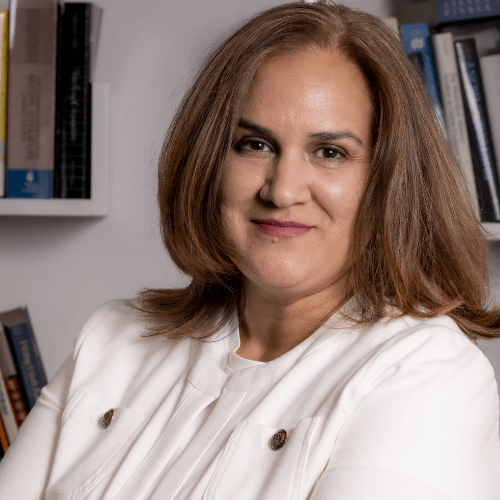
Marian Aguiar, Associate Professor, Department of English
Project Type: Book
Project Title: Errant Mobilities: Decolonial Imaginaries of Mediterranean Migration in Visual and Literary Culture
Project Overview
The Missing Migrants Project estimates that over 31,490 migrants have drowned or gone missing in the Mediterranean region since 2014, most while making the perilous maritime journey toward Europe. In the increasingly surveilled space of the Mediterranean Sea, migrants’ overcrowded boats drift and life jackets wash ashore, providing only traces of people whose passages have uncertain ends. Humanity is at sea: our collective tasked with the responsible care that is “the humane” has left some people lost in the space of the border.
In my book in progress, Errant Mobilities: Decolonial Imaginaries of Mediterranean Migration in Visual and Literary Culture (forthcoming Manchester UP, 2026, Rethinking Borders Series), I seek to interpret the scene of humanity at sea by identifying and analyzing “errant mobility,” a particular form of mobility that marks undocumented migrants’ movement, and by interpreting contemporary cultural works depicting Mediterranean migration in relation to this mobility. The world and people in it are defined through the regulation of movement: the capacity or incapacity to move, and the kinds of movements that are allowed, enabled, or that emerge within this regulatory mode. Errant mobility is a mode of movement that is erroneous, roving and wandering, a strategy and precarious condition that falls outside regulatory norms and therefore the relative protections afforded within what becomes a space of securitization.
In my book, I analyze cultural works that focus on the passages of Mediterranean migrants, including New Migrant Cinema’s humanitarian rescue documentaries; art installations and photography incorporating salvaged maritime emergency objects; digital design and ethical machine learning projects that synthesize human rights activism, disaster forensics and aesthetics; and experimental film and literature refiguring navigation and geography. I read these representations to mark how, while some cultural works reinforce the hierarchies to leave migrants “at sea,” others articulate a radical politics of movement that give rise to decolonial imaginaries.
In my book, I analyze cultural works that focus on the passages of Mediterranean migrants, including New Migrant Cinema’s humanitarian rescue documentaries; art installations and photography incorporating salvaged maritime emergency objects; digital design and ethical machine learning projects that synthesize human rights activism, disaster forensics and aesthetics; and experimental film and literature refiguring navigation and geography. I read these representations to mark how, while some cultural works reinforce the hierarchies to leave migrants “at sea,” others articulate a radical politics of movement that give rise to decolonial imaginaries.
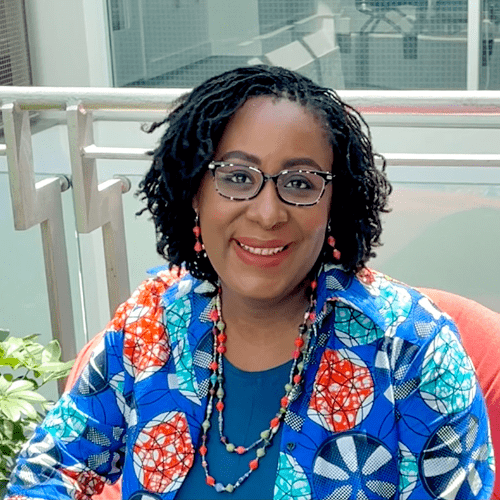
Uju Anya, Associate Professor, Department of Languages, Cultures & Applied Linguistics (LCAL)
Project Type: Digital Platform
Project Title: AfroMetaverse Digital Platform
Project Overview
The AfroMetaverse project initiative contributes to the effort to right historical wrongs against Afrodescendants in world language learning by creating a digital platform that centers this community and prioritizes their successful participation in language education.
AfroMetaverse has three main components:
- A VR multilingual educational gaming platform
- A social networking community
- A repository of multilingual interaction data for interdisciplinary research

Kiyono Fujinaga-Gordon, Assistant Teacging Professor, Department of Languages, Cultures & Applied Linguistics (LCAL)
Project Type: Archiving and Language Documentation
Project Title: Documentation of Nanamui
Project Overview
This research reimagines language and cultural documentation by centering community agency and ethical responsibility while applying interdisciplinary approaches.
Traditional linguistic documentation often reflects academic interests more than those of the communities being studied. This project seeks to transform that model by collaborating directly with speakers of the Ikema dialect of the Miyako language—identified as severely endangered by UNESCO—to determine which aspects of their language they wish to share and with whom.
Within this broader effort, the project focuses on documenting nanamui rituals through recording, digitizing, annotating, and archiving prayers and practices. This approach supports linguistic justice and cultivates self-efficacy within the historically marginalized Ikema-speaking community in Japan.
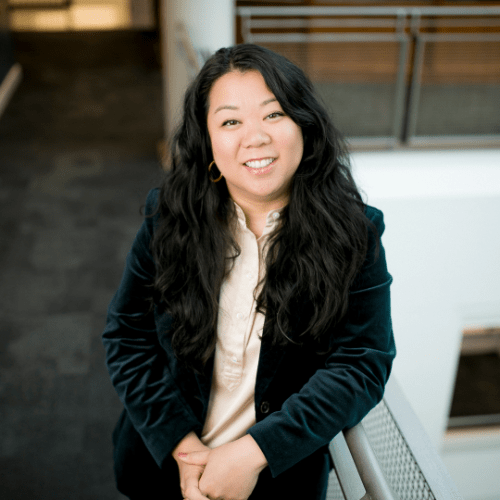
Sarah Idzik, Assistant Professor, Department of English
Project Type: Book Manuscript
Project Title: Odd Hospitality: Race, Kinship, and Rhetorics of Transnational Adoption
Project Overview
Odd Hospitality: Race, Kinship, and Rhetorics of Transnational Adoption interrogates rhetorics around transnational adoption from Asia. It begins with these questions: Why do we, in the West, talk about such adoptions the way we do? Why does this matter, and what are the consequences, especially for how Asian American adoptees experience race and belonging? And how do the communicative practices of adult adoptees help us better understand Asian American racialization, minoritization, and solidarity?
In mainstream U.S. public discourse, transnational, transracial adoption is not typically controversial; the adoption of foreign children is generally depicted as an act of altruism and care. Odd Hospitality explores how “abandoned” or “orphaned” foreign children, particularly Asian children, have been framed as unfortunate waifs in need of colonial intervention through stranger adoption to the West.
These children are then incorporated into U.S. life as paragons of postracial optimism, their apparent full assimilation and subsequent erasure of their racial difference taken as proof that love within the (white) nuclear family can transcend differences of race or nation.
The manuscript argues that adoption rhetoric is an important and persuasive way that the West “makes sense” of Asian American bodies, a method of meaning-making that circulates Asian American bodies as commodified, colonized subjects and narrates the West’s imagined relationship with Asian Americans as that of colonizer and colonized. The results of these processes are the ongoing marginalization, racialization, and objectification of Asian American adoptees; the perpetuation of (neo)colonial relations between the West and Asia; and a containment of our collective capacity to move towards racial, anti-patriarchal, or decolonial justice.
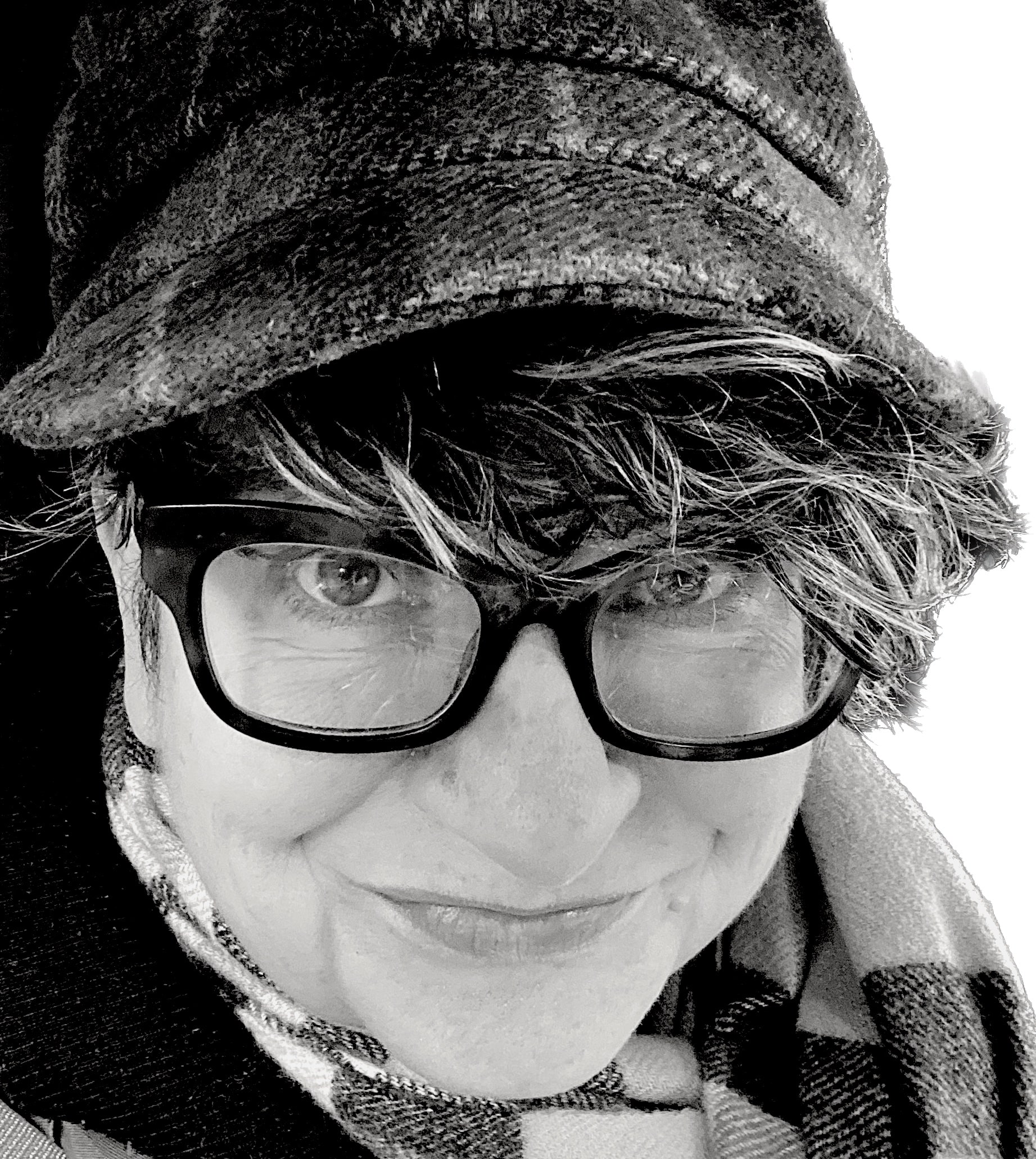
Kathleen Newman, Associate Professor, Department of English
Project Type: Book Manuscript
Project Title: Backstory: Film, Television and Labor in the Age of the Blacklist
Project Overview
Backstory is a revisionist narrative of Hollywood film in the 1950s. In Backstory, I argue that despite the anti-Communist blacklist, and, in some cases, because of it, leftwing, liberal, and working-class cultural producers were able to represent working-class life and even unions, in some surprisingly positive ways.
One of the biggest claims of Backstory is that labor conditions were rapidly changing inside the culture industry itself. Filmmakers were radicalized by the invasion of television, and, especially, by the speed-up that television represented. During the 1950s, Hollywood put out about 800 hours of finished film every year. By contrast, the television industry produced 800 hours of finished television content every eleven days.
Backstory is the first book of its kind to offer a redemptive view of the film and television culture of the blacklist era. While history is usually written by the victors, the history of the blacklist era has been written, more often, by the victims—by those who were blacklisted, sidelined, and silenced. By contrast, in Backstory, I examine the cultural workers who—through a variety of means and methods—were able to keep working.
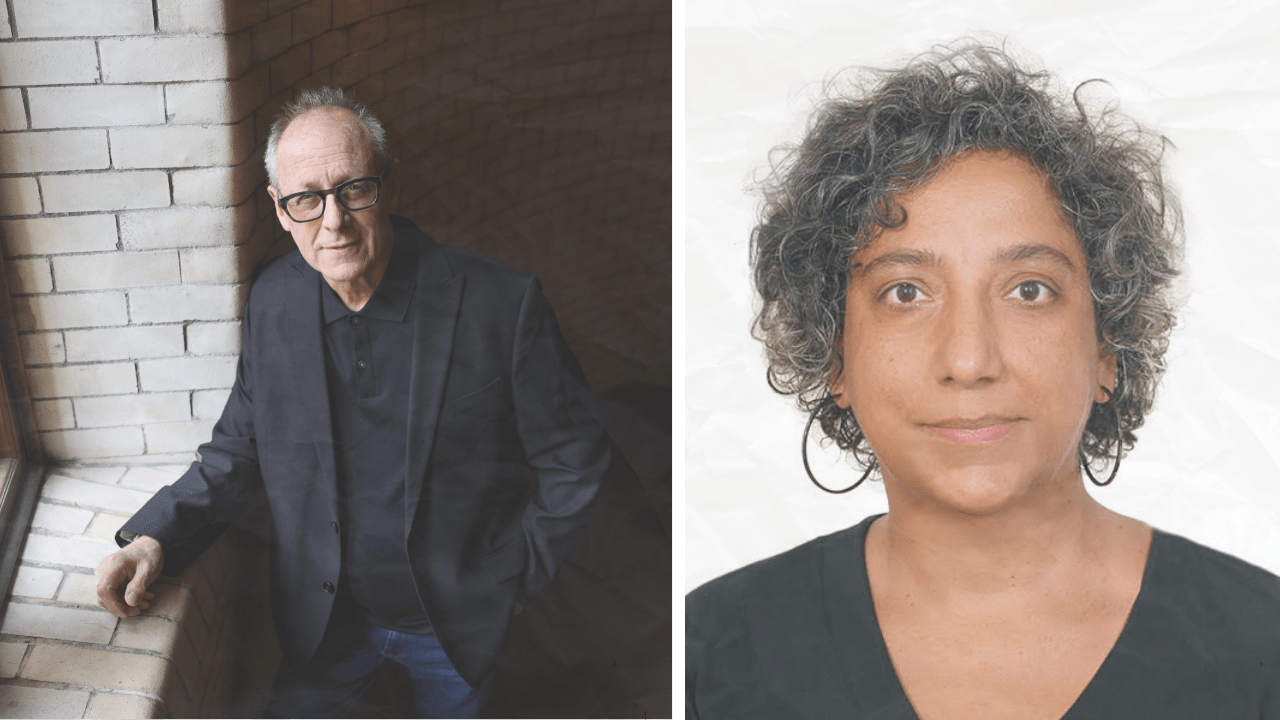
Ralph Vituccio, Teaching Professor, Department of English and Reem Alghazzi, Fellow, Artists at Risk, Department of English
Project Type: Film
Project Title: IN EXILE
Project Overview
“Much of the exile’s life is taken up with compensating for disorienting loss by creating a new world to rule. It is not surprising that so many exiles seem to be novelists, chess players, political activists, and intellectuals.” – Edward Said
The documentary, IN EXILE, examines the lives of eight artists, writers, political activists, and songwriters living in exile, using ethnographic filmmaking to explore complex anthropological themes such as possession, kinship, temporality, and displacement.
The project integrates a scholarly approach to visual anthropology, interrogating the boundaries between poetic documentary and sensory ethnography. By drawing from one of the co-director’s own experiences with migration and dislocation, the film presents a unique perspective on the human experience of exile, fostering deeper engagement with issues of forced migration, conflict, and the lingering effects of violence.
Furthermore, it challenges conventional ethnographic methodologies, demonstrating how film can serve as both an academic and artistic medium for capturing lived experiences often inaccessible to traditional research.
